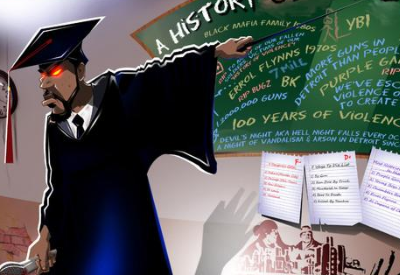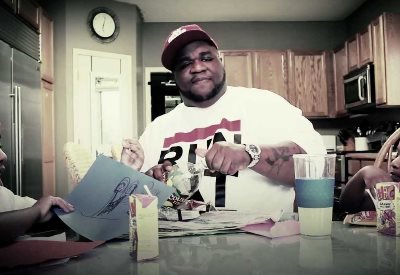by Dustin

9/10
Detroit. One of the meccas of hip-hop. For years the city has churned out phenomenal talent like flowers growing through the cracks of the extremely rough social climate. Since the turn of the millennium, Black Milk has been honing himself as one of Motor City’s finest artists. Working with prominent local names such as Slum Village, Danny Brown, Guilty Simpson, and Royce da 5’9”, he became known as a production wizard before moving into solo rap releases in 2005. His career has been one marked by superhuman craftsmanship, particularly following the release of Tronic in 2008. Black Milk has been an artist to never settle, striving to push his style to new places with each new drop. Just shy of four years since his last rap release, Black Milk stepped out of the shadows with a new offering of tracks; one that may only have been his most bold step forward in the name of musical progression.
FEVER was a sonic departure for Black Milk, at least regarding his rap releases. While it moved away from the alternative street-hop sound, he had crafted on No Poison No Paradise, and If There’s a Hell Below, it built upon the distinctive flavor of the Nat Turner collaborative effort, The Rebellion Sessions. This will likely be a sticking point for some, and admittedly it did make for a confusing initial listen; however, once that shock wore off, the album felt incredibly well put together. It doesn’t take a hip-hop aficionado to recognize that Black Milk has been a production powerhouse for many years, but he still managed to find a point of ascension for FEVER. The instrumentals on this album were fantastic. Through the process of chopping tracks recorded by his actual band, Black Milk gave the beats a sense dynamic liveliness that would otherwise be difficult to accomplish using samples. It created an intimate environment, much like watching a jazz-rap show at a small venue. Additionally, he didn’t entirely abandon the classic boom-bap undertones that have become a signature of the Michigan region. The record maintained a needed sense of familiarity. There was a wonderful balance between genres that often gets lost on artists when they move into new territory. While the jazz and funk elements were certainly prominent, FEVER remained hip-hop at its core.
The production oddities didn’t end there, however, as the vocals on this release were handled uniquely. Black Milk felt to be a little further back in the mix, doing away with the stark contrast between emcee and instrumental. This had some interesting consequences. First and foremost, it gave the album a flawless aspect of cohesion. The way Black Milk allowed himself to be enveloped in the beat made it sound as if he was more at home than ever before. There were no moments that felt as if the beat selection was questionable, a true hat tip toward the attention to finer detail. Secondly, it created an environment in which it became possible to end up fully lost in a track as the listener. There was an ethereal beauty to each song, with the individual pieces joining forces to create a rich final sound. While this may have made it hard to firmly hang onto Black Milk’s lyrics at first, with subsequent listens it became a true marvel to appreciate.
Making it all the more worth taking time was the fact that Black Milk’s performance as an emcee remained solid as ever. There’s something to be said about knowing when to keep it simple, and he has proven time and time again to be a master of that art. While admittedly more ambitious on FEVER than some of his past work, Black Milk’s flows never attempt to overwhelm. They were tight and complementary to the chilled out production. At the lyrical level, he opted to focus on his strengths: observant bars and social storytelling. Verses were packed to the brim with quick poignancy, and tracks such as “Foe Friend” highlighted his ability to craft interesting stories out of the day-to-day. What FEVER lacked in bombastic vocals was made up for in spades with unmatched consistency. There isn’t much else that can be said. Black Milk was simply extremely sharp for the entire duration of the project, and that’s an underrated quality for an album to possess.
Unfortunately, FEVER was the sort of album that will evade a good handful of listeners. It felt distinctly removed from the path Black Milk was on, and if fans don’t approach it with an open mind, it likely won’t land with them as well as it could. This is “unfortunate” because beyond that surprise it was truly a pleasure to experience. Spinning it with expectations checked at the door made it evident that this is a special record. A potential candidate for album of the year, assembled by one of hip-hop’s most artistically attentive minds. Black Milk once again found a way to push the envelope, a remarkable feat for an individual with an already fantastic track record of releases. Bravo.






